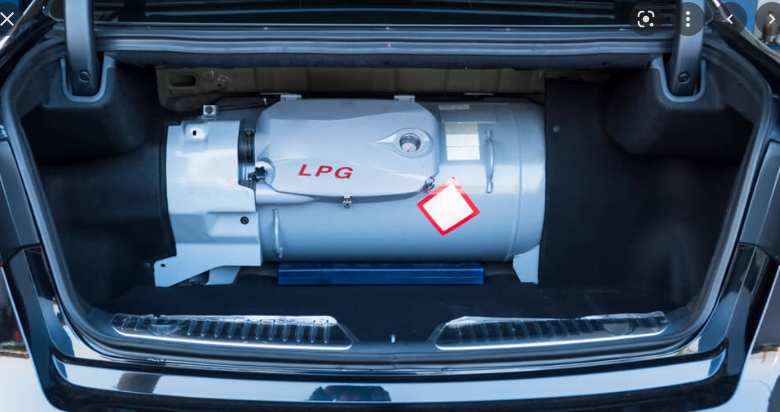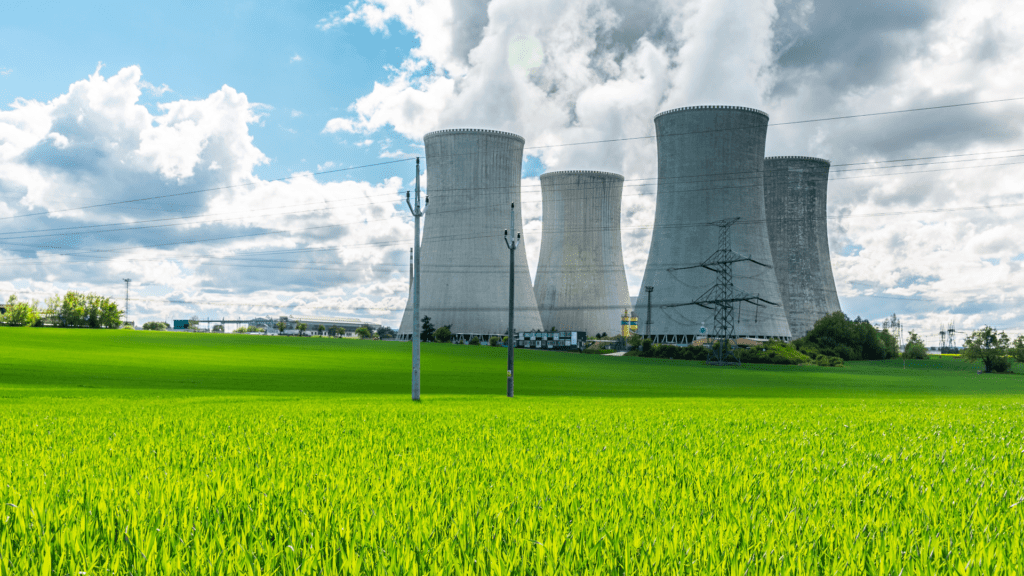Western Australia Achieved the Cheapest Natural Gas Prices.
Western Australia is endowed with an impressive
array of natural gas reserves, making it a global powerhouse in the energy
sector.
This states region’s geological landscape is
particularly rich in hydrocarbon resources, primarily concentrated in major gas
fields such as the North West Shelf and the Browse Basin.
These areas have been pivotal in establishing the
state as a leading producer of natural gas, contributing significantly to its
economic prosperity.
The North West Shelf, one of the largest gas
fields in the world, has been a cornerstone of Western Australia’s natural gas
industry.
Discovered in the 1970s, this offshore field has
an estimated 50 trillion cubic feet of recoverable gas reserves.
Similarly, the Browse Basin, located off the
Kimberley coast, is another significant contributor with substantial reserves
that have attracted global attention.
These fields not only ensure a steady and reliable
supply of natural gas but also bolster the state’s export capabilities,
reinforcing its position in the global energy market.
The exploration and extraction of these vast
natural gas reserves have been facilitated by advancements in technology.
Seismic imaging and drilling technologies have
revolutionized the way gas is located and extracted, enhancing efficiency and
reducing costs.
Horizontal drilling is one of the key techniques
that have enabled the tapping of previously inaccessible reserves.
These technological advancements associated with
this method of natural gas extraction has increased the volume of gas
production but have also minimized environmental impacts, aligning with
sustainable practices.
Throughout its history, Western Australia has
witnessed several milestones in its gas industry.
The establishment of the North West Shelf Venture
in the 1980s marked a significant step in the commercial production of natural
gas.
Subsequent developments, such as the Gorgon and
Wheatstone projects, have continued to expand the state’s capacity to meet both
domestic and international demand.
These milestones underscore the critical role of
natural gas in Western Australia’s energy landscape and its broader economic
framework.
Western Australia’s achievement in offering the world’s
cheapest natural gas prices can be attributed, in large part, to the
development of a well-integrated gas industry.
Over the years, substantial investments have been
made in the infrastructure required to support the efficient transportation and
distribution of natural gas.
Key infrastructure developments, including an
extensive network of pipelines and state-of-the-art processing facilities, have
significantly contributed to this success.
These pipelines ensure that natural gas can be
transported seamlessly from production sites to end-users, minimizing
logistical costs and enhancing supply chain efficiency.
One of the pivotal elements in the growth of
Western Australia’s gas industry has been the active role played by key
industry players.
Major companies in the sector have invested
heavily in both upstream and downstream activities, from exploration and extraction
to processing and distribution.
This comprehensive involvement has led to the
establishment of a robust and resilient gas industry capable of meeting the
demands of both domestic and international markets.
Government initiatives have also played a crucial
role in shaping the gas industry in Western Australia.
Policies aimed at fostering a conducive business
environment, coupled with strategic investments in infrastructure, have laid a
strong foundation for the industry’s growth.
For instance, the Western Australian government
has implemented regulatory frameworks that encourage investment and innovation
in the gas sector.
These measures have created a stable and
predictable market environment, which is essential for attracting both local
and foreign investments.
Public-private partnerships have further bolstered
the development of Western Australia’s gas industry.
Collaborative efforts between the government and
private sector have facilitated the financing and execution of large-scale
infrastructure projects.
These partnerships have not only accelerated the
development of critical infrastructure but have also ensured that projects are
completed on time and within budget, thereby contributing to the overall
efficiency of the gas industry.
In essence, the well-integrated gas industry in
Western Australia is the result of a combination of strategic infrastructure
developments, proactive industry participation, supportive government policies,
and effective public-private collaborations.
These elements have collectively enabled the state
to achieve its position as a leader in providing affordable natural gas.
Western Australia’s domestic gas reservation
policy, introduced over two decades ago, has been a cornerstone in the region’s
strategy to secure affordable natural gas for its citizens.
This pioneering policy mandates that a certain
percentage of natural gas extracted from offshore fields be reserved
specifically for domestic consumption.
This forward-thinking measure was conceived with
the dual objectives of ensuring a stable supply of natural gas for local use
and shielding the domestic market from the volatility of global gas prices.
The origins of this policy can be traced back to
the early 2000s, a period marked by heightened concerns over energy security
and the long-term sustainability of natural resources.
Very clever policymakers in Western Australia (I
think it was mainly driven by the Premier Alan Carpenter) recognized the
growing demand for natural gas within the state, driven by both residential
needs and the energy-intensive industrial sector.
To address these concerns, the government
implemented the domestic gas reservation policy, requiring that up to 15% of
gas produced offshore be earmarked for local use.
The rationale behind this policy was clear: by
reserving a portion of the gas for domestic consumption, Western Australia
aimed to create a buffer against the fluctuations in international gas markets.
This strategy has proven to be remarkably
effective, as evidenced by the consistently low natural gas prices in the
region. Local consumers, including households and industries, have benefited
from a reliable supply of gas at stable prices, fostering economic growth and
energy security.
When comparing Western Australia’s approach to
that of other regions and countries, the contrasts are striking.
Many other gas-producing regions have not adopted
similar reservation policies, choosing instead to prioritise exports.
As a result, they often face higher domestic gas
prices and greater vulnerability to global market dynamics.
Western Australia’s policy has thus been
instrumental in creating a competitive advantage for the state, maintaining
both affordability and supply reliability in the local gas market.
Overall, the domestic gas reservation policy
stands as a testament to the foresight of Western Australia’s policymakers.
By prioritising the needs of local consumers and
industries, the state has successfully navigated the complexities of the global
energy landscape, achieving some of the lowest natural gas prices in the world.
Economic and Social Benefits of
Affordable Natural Gas.
Western Australia’s achievement in securing some
of the world’s cheapest natural gas prices has yielded a multitude of economic
and social benefits. The most immediate and palpable effect is the bolstering
of local industries. Energy-intensive sectors, such as manufacturing, mining,
and chemical production, have thrived due to reduced operational costs, making
them more competitive both domestically and globally. These industries have not
only expanded their production capacities but have also attracted significant
foreign investment, further fuelling economic growth.
Another critical benefit has been the creation of
jobs. Lower energy costs have enabled businesses to allocate more resources
towards expansion and innovation, leading to increased employment
opportunities.
This job creation spans various sectors, from the
natural gas industry itself to ancillary services such as transportation and
retail.
Consequently, the unemployment rate has decreased,
contributing to a more robust and resilient economy.
The advantages extend beyond the industrial
sphere, permeating into households across Western Australia. Reduced energy
bills have provided significant financial relief to families, translating into
increased disposable income.
This additional income can be spent on other
essential needs such as education, healthcare, and housing, thereby improving
the overall quality of life.
Furthermore, lower energy costs have helped
mitigate the impact of inflation, ensuring that the cost of living remains
manageable for the average household.
Looking ahead, the sustainability of these
benefits hinges on several factors, including the continued availability of
natural gas reserves and the adoption of innovative technologies to enhance
extraction and distribution efficiencies.
Additionally, the region must navigate
environmental challenges and regulatory frameworks to maintain its competitive
edge.
Other regions seeking to emulate Western
Australia’s success can learn valuable lessons from its strategic policies,
including investment in infrastructure, fostering public-private partnerships,
and enacting supportive regulations.
Reasons Why Western Australia is
Better Than the Rest of Australia.
Western Australia is renowned for its breathtaking
natural beauty and diverse landscapes, setting it apart from the rest of the
country. The region is home to an array of stunning natural wonders, each
offering a unique experience that captivates visitors.
One of the most iconic destinations is the Coral
Coast, where pristine beaches meet crystal-clear waters, creating a paradise
for beach lovers and marine enthusiasts alike.
The Pinnacles Desert, with its striking limestone
formations, provides a surreal and otherworldly landscape that is unlike
anything else in Australia.
The Kimberley region is another highlight, famous
for its rugged terrain, dramatic gorges, and cascading waterfalls.
This remote area offers an unparalleled sense of
adventure, with attractions such as the Bungle Bungle Range and Mitchell Falls
captivating explorers.
The Margaret River region presents a more tranquil
landscape, characterized by rolling vineyards and picturesque wineries.
This area is not only a haven for wine enthusiasts
but also offers beautiful coastal scenery and lush forests. The combination of
gourmet food, world-class wines, and natural beauty makes Margaret River a standout
destination.
Rottnest Island, located off the coast of Perth,
is another gem in Western Australia’s crown. Known for its adorable quokkas and
stunning beaches, the island is perfect for a relaxing getaway. Going to Rottnest is a memorable experience,
it’s an absolutely beautiful place and you’ll love the boat ride there and back
as well.
Visitors can enjoy cycling, snorkeling, and
exploring the island’s rich history.
Ningaloo Reef is a marine wonderland, offering the
unique opportunity to swim with whale sharks, manta rays, and a plethora of
other marine life.
Its vibrant coral reefs and abundant marine
biodiversity make it a snorkeler’s and diver’s paradise.
Lastly, Karijini National Park is famed for its
dramatic gorges, ancient rock formations, and refreshing waterholes.
Hiking through this park reveals some of the most
awe-inspiring landscapes in the country, with each trail offering a new and
exciting discovery.
From the rugged beauty of the Kimberley to the
serene vineyards of Margaret River, Western Australia’s natural attractions
provide experiences that are truly unmatched elsewhere in Australia.
The Cultural and Historical
Significance of WA.
Western Australia boasts a profound cultural and
historical heritage that distinguishes it from other states in Australia. The
region is home to some of the world’s oldest living cultures.
Early European settlers also left an indelible
mark on Western Australia. Fremantle Prison, a UNESCO World Heritage site,
stands as a significant historical landmark.
Built by convicts in the 19th century, the prison
offers a glimpse into the colonial past and the harsh conditions endured by
early settlers.
Another pivotal historical region is the
Goldfields, where the discovery of gold in the late 1800s spurred a rush that
transformed the state’s economy and led to the establishment of bustling towns.
The Perth International Arts Festival, one of the
oldest and most prestigious in the country, showcases the talents of artists,
musicians, and performers from around the world.
Western Australia plays a crucial role in
Australia’s mining boom, which has shaped the modern economy and
infrastructure.
The state is rich in natural resources,
particularly in the Pilbara region, which is renowned for its vast iron ore
deposits.
The mining industry has driven economic growth,
leading to advancements in infrastructure and providing employment
opportunities, thereby cementing Western Australia’s pivotal role in the
nation’s economic development.
Economic Strength and
Opportunities in WA.
Western Australia (WA) stands out as a powerhouse
in the Australian economy, largely driven by its thriving mining and resources
sector.
The state is rich in natural resources, including
iron ore, gold, and natural gas, which are major contributors to both its own
economy and the national GDP.
The mining industry in WA not only provides
significant revenue but also offers numerous employment opportunities,
supporting a high standard of living for its residents.
Beyond mining, Western Australia is becoming a hub
for technological innovation. The tech sector is expanding rapidly, with
numerous start-ups and established companies investing in the region.
This growth is supported by government initiatives
and investments aimed at fostering innovation, research, and development.
Additionally, the agricultural sector in WA is
robust, with the state being a major exporter of wheat, barley, and other
grains, contributing to its economic diversity.
Tourism is another burgeoning industry in WA. The
state’s unique landscapes, pristine beaches, and rich cultural heritage attract
millions of visitors each year.
This influx of tourists generates substantial
revenue and creates jobs in hospitality, retail, and travel services.
The strategic location of Western Australia,
particularly its proximity to Asian markets, further enhances its economic
significance.
This geographical advantage facilitates
international trade, making WA a key player in global commerce.
Living and working in Western
Australia come with several benefits.
The state enjoys higher average incomes compared
to other parts of Australia, partly due to the lucrative mining sector.
WA has lower unemployment rates, providing a
stable job market for its residents. These economic advantages make Western
Australia an attractive destination for professionals seeking career growth and
a high quality of life.
From its dominant mining sector to the burgeoning
tech and tourism industries, WA offers a dynamic and prosperous environment for
both businesses and individuals.
Its strategic importance in global trade and the
benefits of higher incomes and lower unemployment rates further solidify its
standing as a leading economic force in Australia.
Lifestyle and Quality of Life in
WA.
Western Australia stands out for its uniquely
enviable lifestyle, often ranking high on quality of life indices.
One of the key factors contributing to this high
quality of life is the state’s excellent healthcare and education systems.
Western Australia boasts a well-developed
healthcare infrastructure that ensures residents have access to top-notch
medical services.
Additionally, the education system is robust, with
a variety of schools and universities that are recognized for their academic
excellence.
The state’s low population
density is another significant advantage.
With fewer people per square kilometre compared to
other states, Western Australia offers a sense of spaciousness and tranquillity
that is hard to find elsewhere.
This lower density contributes to high levels of
safety and security, making it an ideal place for families and individuals
seeking a peaceful environment.
Vibrant cities like Perth enhance
the appeal of Western Australia.
Perth, the state capital, is one of the cleanest
places in the world I’ve ever come across, it provides a perfect blend of urban
amenities, a relaxed atmosphere and you certainly get the vibe that people care
about their city.
The city is known for its thriving arts scene,
diverse culinary options, and numerous shopping centres.
Despite its urban character, Perth maintains a
laid-back vibe that is characteristic of the entire state.
Coastal towns in Western Australia offer a
laid-back beach lifestyle that is highly sought after.
These towns are perfect for those who enjoy being
close to the ocean, engaging in activities such as surfing and beachcombing.
The state’s commitment to environmental
sustainability ensures that these natural landscapes are preserved, providing a
clean and beautiful environment for residents and visitors alike.
Recreational activities in
Western Australia are abundant and varied.
From surfing the iconic waves at Margaret River to
hiking in the stunning national parks and wine tasting in renowned vineyards,
there is something for everyone.
The state’s dedication to
environmental sustainability further enriches these experiences, allowing
people to enjoy nature responsibly in one of the best places in the world.












[…] THE UNITED STATE OF WESTERN AUSTRALIA […]
[…] WILL WESTERN AUSTRALIA ASSUME TOTAL CONTROL? […]
[…] THE UNITED STATE OF WESTERN AUSTRALIA […]
[…] THE UNITED STATE OF WESTERN AUSTRALIA […]
[…] Berry Tree growing space very soon. Unless all States in Australia are going to take a leaf out of Western Australia’s book and fix up the cost of methane gas and electricity generation one and for all, then growing […]